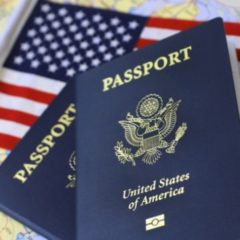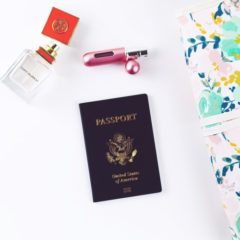
How to pass the interview without any problems and get a visa? This question is raised by every person who wishes to obtain the U.S. visas. There are two types of the U.S. visas: immigrant visas are non-immigrant visas. Immigrant visas allow foreigners to immigrate to the United States for permanent residence, work, and study in the United States without any restrictions. The immigrant visa is also known as Green Card or Permanent Resident Card. Non-immigrant visas allow a temporary stay in the United States. The F-1 Student Visa refers to the non-immigrant visas.
No matter what kind of visa you get – the immigrant or non-immigrant visa – you need to know that it is a complex and multi-step process, which includes the submission of the application, the preparation of the required documentation, the passing of the medical examination (not for all visas) and the final, decisive step is the passage of the interview at the U.S. Consulate/Embassy. You must remember that the consular officer may ask questions that are not related to the theme of the interview, so you need to be ready for it, prepare carefully and select truthful answers. What kind of questions might the consular officer ask?
The Russian citizen Julia with her friend has just received a student visa and now they share their impressions from the interviews. “19 May we were interviewed at the U.S. Embassy in Moscow. We came at 10.10 (the interview was scheduled at 10.30), came out at 12.00. Of course, we were worried. We’re going in July for 3 weeks in NY general English. The visas were approved for both of us. I was interviewed minutes 5. The consular officer knew about me – 26 years old, not married, no children, working for almost three years at the same place, no relatives in the United States, in the new passport 1 visa + Schengen trip to Ecuador (3 more Schengen visas, but she did not ask for the old passport).
Questions were all in Russian:
1) Why did you choose this school? – the most popular and good reviews
2) Why did you choose this program? – I want to learn English language and relax
3) How much time do you work at the same place? – almost 3 years
4) Have you previously worked as an accountant, too? (before I was working as a warehouse manager, apparently she checked me) – No, I worked as a warehouse manager
5) Why did you change profession? – Because while I was studying, I worked as a manager, and then I graduated from university and began to work as an accountant
6) Why do you need English? For work? – No, just for living and for tourism, because I had never taught English, and I want to catch up
7) When are you planning to fly to the United States? – the weekend before the school week
Then the consular officer continued typing something silently in a computer, and leafing through my passport
8) Have you been to Ecuador? Vacation? – Yes
9) Why Ecuador? – There was a competition at work; the winners were awarded a trip
Then she was typing again something for a long time, then she folded the DS-160 in the passport and said: Your visa is approved, make sure the I-20 to bring and present when entering the country.
I have not noticed the special friendliness from the consul, still, the result is positive and this is important. Passport was brought me today”
It should be recalled that the F-1 Student Visa allows you to stay in the United States for studying. It is important to understand all the application requirements including how to choose the right institution to study in the United States, how to make an appointment, how to submit the application for the visa, and to use the current forms to apply for a student visa.
To learn more about the process of obtaining a student visa, please visit our website http://www.usimmigrationapplication.org/visas/f1-student-visa





